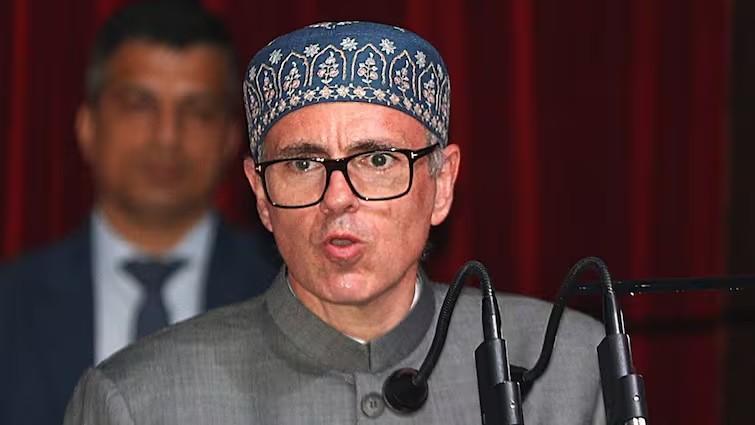
Normalcy in J&K post Art 370 abrogation is forced, not organic: CM
The abrogation of Article 370, which granted special status to Jammu and Kashmir (J&K), has been a contentious issue since its removal in August 2019. The Centre had claimed that the move would bring normalcy to the region, which had been plagued by terrorism and political unrest for decades. However, J&K Chief Minister Omar Abdullah recently poured cold water on these claims, stating that the normalcy in the region is “forced” and not organic.
Abdullah’s comments came during an interview with a news channel, where he was asked about the current situation in J&K. He expressed his opinion that if the normalcy in the region was organic, then it would be the best thing that had happened to the state. However, he cautioned that if it was driven by fear, then there was a problem.
“But I’ll hazard that people don’t believe it is organic,” he added, indicating that the normalcy in J&K is not as natural as claimed by the Centre.
Abdullah’s statement is significant, as it highlights the concerns of many residents of J&K, who have been expressing their anxiety and fear about the situation in the region. The abrogation of Article 370 had led to a complete lockdown in the region, with the Centre imposing restrictions on movement and communication.
The lockdown was imposed to prevent any violence or unrest, but it had a devastating impact on the daily lives of the residents of J&K. The restrictions were eased gradually, but the fear and anxiety among the residents remained.
Abdullah’s statement also raises questions about the nature of the normalcy in J&K. Is it truly normal, or is it a forced normalcy, driven by fear and repression? The Centre’s claims about the normalcy in J&K are based on the fact that the region has been peaceful since the abrogation of Article 370. However, this peace is fragile and can be disrupted at any moment.
The normalcy in J&K is also marred by the presence of a large number of security personnel in the region. The Centre had deployed thousands of security personnel in J&K to maintain law and order, but this has led to a sense of occupation among the residents.
Abdullah’s statement is also significant, as it highlights the differences between the Centre and the opposition parties in J&K. The Centre has been claiming that the abrogation of Article 370 has been a success, while the opposition parties have been criticizing the move and calling for its reversal.
The opposition parties have been saying that the abrogation of Article 370 has been a failure, as it has not brought peace and prosperity to the region. They have been calling for a return to the pre-August 5 situation, when J&K had a special status and was a separate state.
Abdullah’s statement is also a reflection of the sentiments of many residents of J&K, who are still anxious and fearful about the situation in the region. The abrogation of Article 370 had led to a sense of uncertainty and insecurity among the residents, and Abdullah’s statement is a reflection of this anxiety.
In conclusion, Abdullah’s statement highlights the forced nature of the normalcy in J&K post the abrogation of Article 370. The Centre’s claims about the normalcy in the region are based on the fact that the region has been peaceful since the abrogation of Article 370, but this peace is fragile and can be disrupted at any moment.
The normalcy in J&K is also marred by the presence of a large number of security personnel in the region, which has led to a sense of occupation among the residents. Abdullah’s statement is a reflection of the sentiments of many residents of J&K, who are still anxious and fearful about the situation in the region.






